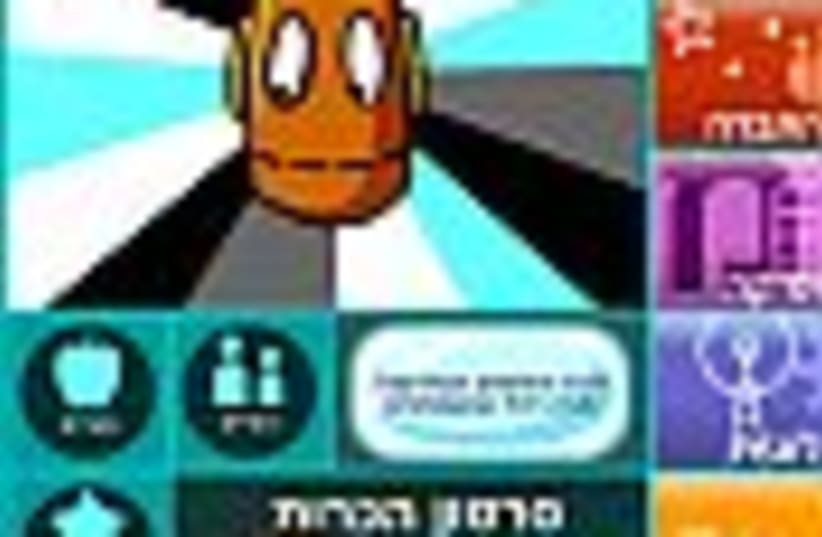This week, Kadar arrived in Israel to launch the Israeli version of the site, brainpop.co.il, which became operative last month.
The character-based Web site stars a boy called Tom and his robot friend, Moby, who together explore hundreds of different scientific subjects.
"In the US," Kadar told The Jerusalem Post, "the site is in use in almost every elementary school, and more than 20% of them are subscribers." In England, according to Kadar, the site is among the 30 most visited on-line sites.
While some teachers use the site to review subjects studied in class, others use it as a bonus promised at the end of the class, or assign a visit to it as homework.
According to Kadar, the tens of thousands of e-mails the site receives every day from American children enables him to be the first to know what is on their minds - be it anthrax, hurricanes, or bird flu.
Kadar, who defines the site as a "labor of love devoid of any business interest," is adamant about the site remaining privately owned, and will not advertise on it or provide any links to other sites.
Despite the tremendous brand recognition it has among American children, he said, he has consistently refused all offers to buy the site, invest in it, or create related products for children. While the Israeli site is currently free, in the future it is likely to be available for a nominal subscription fee as it now is in the US.
A pediatrician and diagnostician, Kadar said the idea for the site arose out of conversations with his own children, in which he tried to introduce scientific concepts in the course of everyday experiences and observations.
One of the purposes of the site, he said, is for parents and children to use it together as a shared activity. "Computers are something that separates people socially, but we don't want this site to be used alone. We want it to be used in groups," he explained.
The site, according to Kadar, is especially conducive to children with learning difficulties, because it is easily accessible and offers a rewarding process of discovery that can restore their confidence in their ability to learn.
The site, which is designed for elementary school children, will soon be expanding to add material for both older and younger children.
Along the way, Kadar said, he and the educators responsible for the site's content realized they need to do more to move away from gender stereotypes related to mastering the sciences. Tom, the know-it-all character who stars on the site, is a boy. In the near future, however, two additional female characters will be added to the site to create a balanced representation of gender.
Eliat Azran, a science teacher at Harel elementary school in Ashdod, experimented with a pilot version of the Hebrew site in her science classes. Although she liked the site overall, Azran pointed out that most of the children she teaches do not have computers at home, and many of those that do are not connected to the Internet.
Nevertheless, Kadar believes that the site can act as a great equalizer. "Once you do have on-line access," he said, "the content is available to everyone."
Mati Alper, who teaches at Derby University in Israel and who studies educational computer programs, told the Post he was impressed by brainpop's Israeli site.
"It's very refreshing and well-designed," he said. "It shows a lot of investment as well as a true understanding of how children use computers, because if the site doesn't move quickly enough they will tend to abandon it very rapidly."
Israeli education officials, however, are slower to catch on, even though the company is in touch with various educators responsible for developing educational programs.
"My thinking is that, if the kids like it, they will get their teachers to use it, and I believe this kind of grassroots interest will eventually expand," Kadar said.
So far, the Israeli site, which has been accommodated to the Education Ministry's school program with local subjects, has been visited by 50,000 people, including children, parents, and adults who were taken with its fun and informative interface.
One parent, who wrote to the Web site that his children were hypnotized by the site, lauded it in a letter filled with the spelling mistakes of a new immigrant. "Perhaps you can add some units on Israeli grammar," his letter concluded hopefully.
| More about: | England, Israel, Hebrew language, Ashdod |
